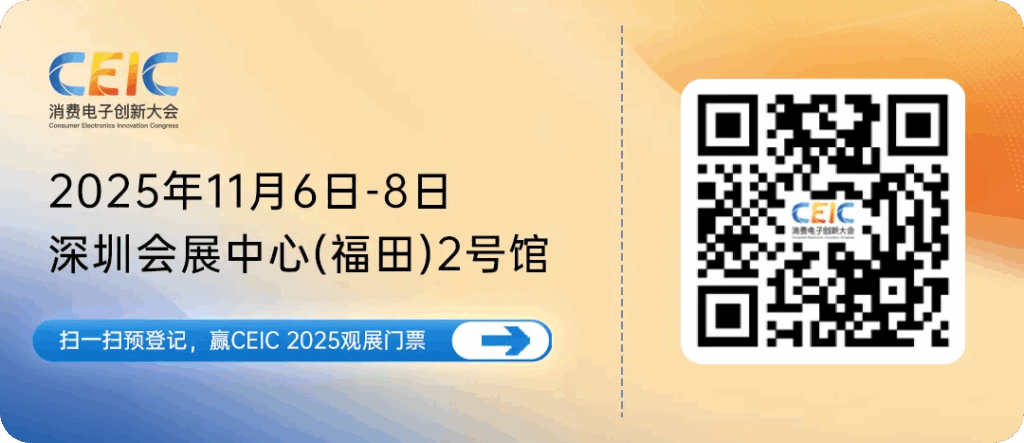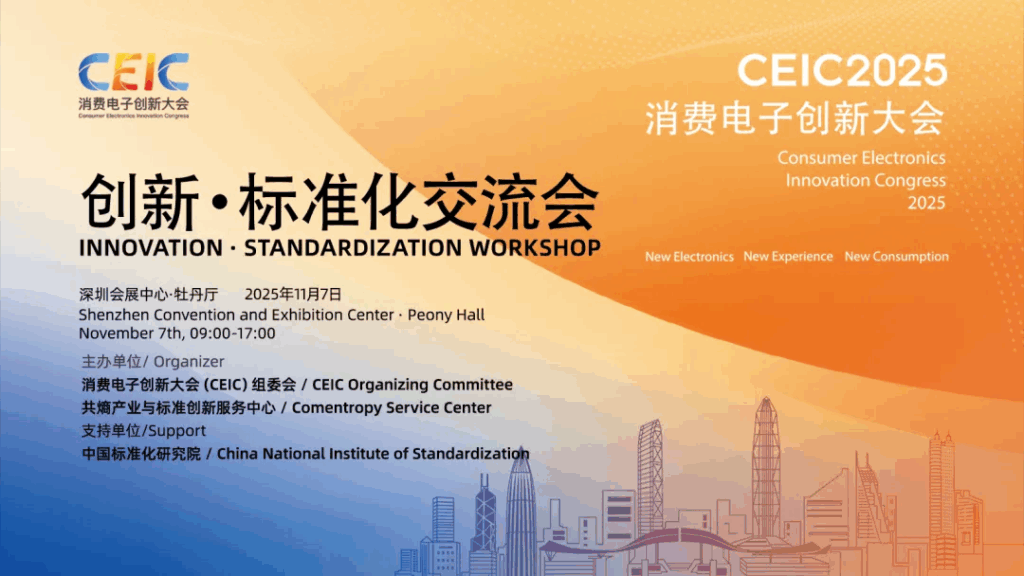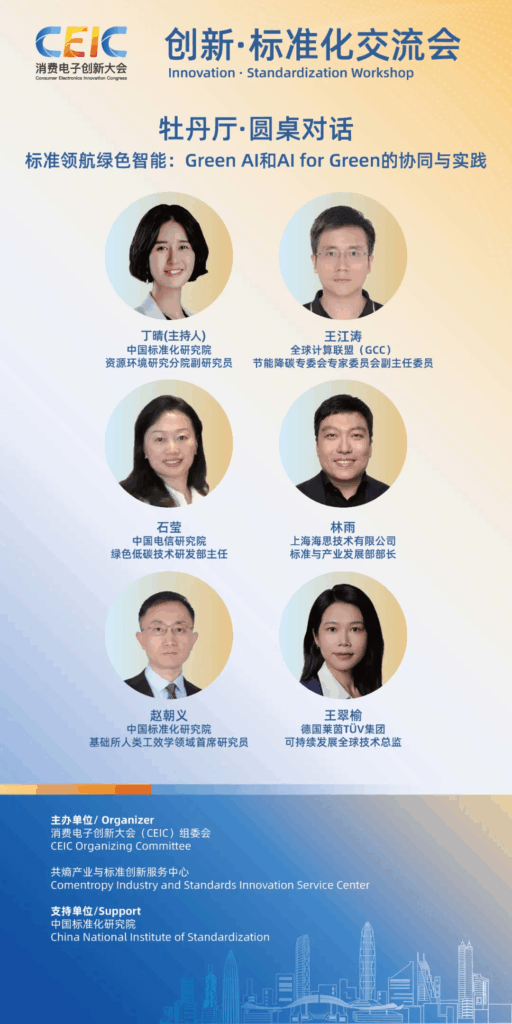Green AI Era: How Can Standards Steer Sustainable Development?
2025-11-06


China National Institute of Standardization, Global Computing Consortium (GCC), China Telecom, HiSilicon, and TÜV Rheinland to discuss in Shenzhen on November 7
November 7, 2025 | Peony Hall, Shenzhen Futian International Convention & Exhibition Center
As the energy consumption of AI computing centers continues to rise and the ITU-R’s 6G Vision places “sustainability” as a core design principle, green intelligence is transforming from an option to a necessity. How can AI itself become greener (Green AI)? How can AI empower industries toward green transformation (AI for Green)? And can standards serve as the “operating system” for this two-way transformation?
From optimizing the PUE (Power Usage Effectiveness) of data centers to improving the energy efficiency of AI chips, from smart grid scheduling to industrial energy-saving and carbon reduction, the practice of green intelligence is accelerating. Yet, challenges persist: inconsistent cross-scenario standards, a lack of testing methods for emerging technologies, and barriers to international mutual recognition. In this era of deep integration between AI and sustainable development, how can standards take the lead?
On November 7, 2025, as part of the 2025 Consumer Electronics Innovation Congress (CEIC), the Innovation · Standardization Workshop will host a cutting-edge dialogue on green intelligence at the Shenzhen Futian International Convention & Exhibition Center. Organized by the CEIC committee and the Comentropy Industrial & Standards Innovation Service Center, and supported by the China National Institute of Standardization, the workshop will bring together over 200 leading experts in standardization.
Key Roundtable Discussion
Standards Leading Green Intelligence: Synergy and Practice of Green AI and AI for Green

Two-Way Empowerment Through Standardization
Green AI Focus | Making AI Greener
- Current energy consumption and carbon emissions of supercomputing and intelligent computing centers, and the role of standards in addressing these challenges.
- Energy efficiency evaluation standards for AI model training and inference.
- Green computing standards for data center PUE optimization, liquid cooling technologies, and more.
- Full lifecycle carbon footprint accounting and certification for AI hardware.
AI for Green Focus | Using AI to Drive Sustainability
- AI-driven energy forecasting and optimization in power grids, transportation, and other sectors.
- AI-enabled energy-saving practices in consumer products like smart appliances and wearable devices.
- AI-assisted green transformation in industrial manufacturing and supply chain management.
- Human-centered intelligent system design aligned with sustainable development goals.
Core Topics
- From computing power to end-user devices: The most representative green intelligence use cases across various sectors.
- Testing and certification as the proving ground for standards: How to align standards with the efficiency and quality of AI products.
- Gaps in standards: Which standards are urgently needed for areas like supercomputing, intelligent computing centers, and generative AI?
- Challenges of internationalization: How to address standard differences across architectures (x86/ARM/RISC-V) and regions.
- Human-centered design: How to ensure AI systems remain user-friendly while pursuing green and low-carbon goals.
Workshop Value Proposition
1. A Full Industry Chain Perspective
The workshop will bring together five key forces—computing infrastructure, communication networks, chip design, national think tanks, and international certification bodies—to explore the green intelligence standard system in a comprehensive manner, from servers to end-user products and from data centers to consumer goods.
2. Bridging Theory and Practice
This event combines the theoretical insights of the China National Institute of Standardization (in areas like ergonomics and resource environments) with the frontline practices of enterprises and international alliances (such as GCC, China Telecom, and HiSilicon).
3. Merging Chinese Experience with a Global Vision
As an international authority, TÜV Rheinland will share best practices in global green intelligence testing and certification, while GCC will explore how to help China’s computing industry “go global” to address international standardization differences and barriers to mutual recognition.
4. Exploring Two-Way Synergies
The workshop will not only address green and low-carbon AI (efficiency and carbon footprint) but also discuss how AI can empower traditional industries in green transformation, showcasing the collaborative path between Green AI and AI for Green.
Three Additional Roundtables
Roundtable 1
Standardization Empowered by AI Across Industries
Experts from Huawei, CNIS, Tencent, and other leading organizations will explore how AI standards can drive change across industries
AI Empowering Industries: How Can Standardization Break Through?
Roundtable 2
Going International
The “1+6” international organizations from the Hetao Cluster will share their experiences on internationalization strategies and challenges.
How Can Chinese Standards “Going International”?
Roundtable 3
International Recognition and High-Quality Development of Association Standards Under Global Competition
The State Administration for Market Regulation and the China Association for Standardization will decode the path to gaining international recognition for group standards.
How Can Association Standards Gain International Recognition?
Why You Must Attend
- Strategic Positioning: Gain insights into the cutting-edge trends of green standards in areas like 6G and AI chips under the “dual carbon” goals.
- Two-Way Methodology: Learn the complete standardization pathways for Green AI and AI for Green, from efficiency evaluation to testing and certification.
- International Benchmarking: Hear from TÜV Rheinland on global best practices and GCC on strategies for addressing international challenges.
- Cross-Disciplinary Perspectives: Engage in deep dialogues with experts from five key areas—computing, communication, chips, think tanks, and certification.
Innovation · Standardization Workshop
Date
November 7, 2025
Location
Peony Hall, Shenzhen Futian International Convention & Exhibition Center
Keynotes & Roundtable Discussions | 200+ Global Standardization Leaders

Green Intelligence Starts with Standards—See You in Shenzhen!
